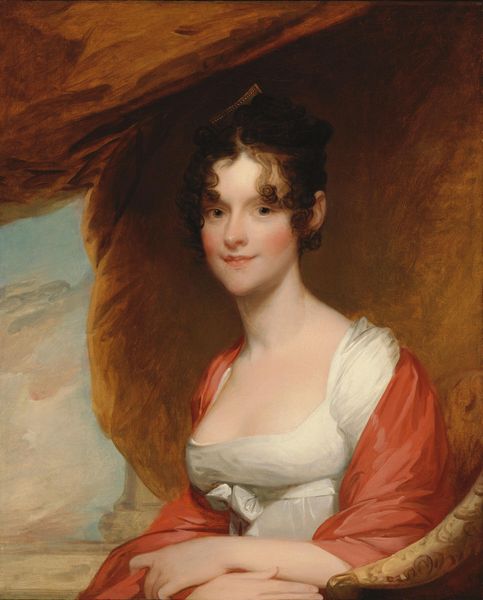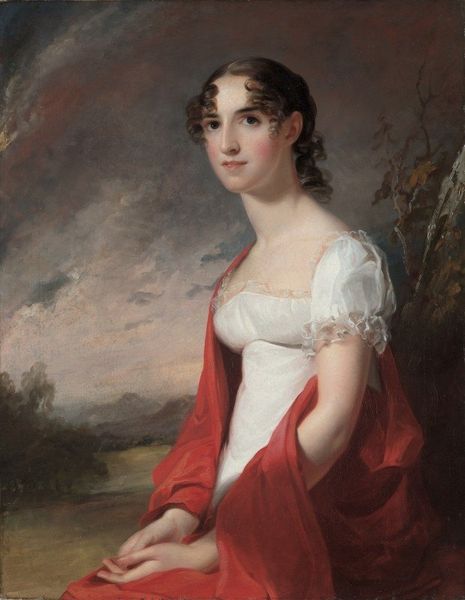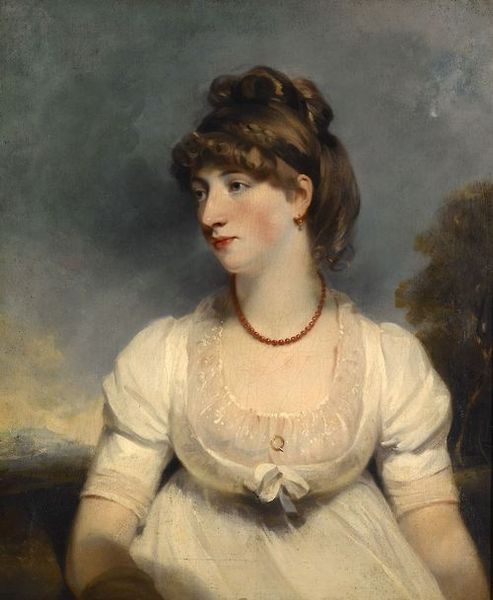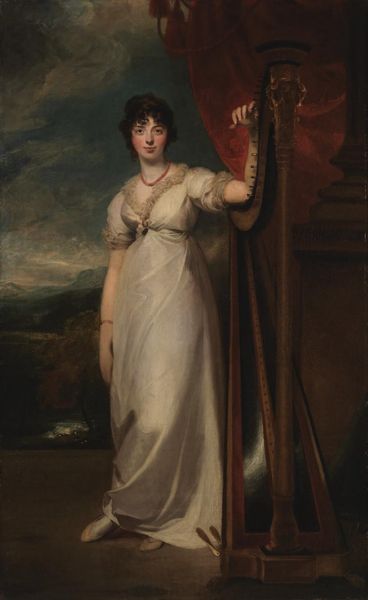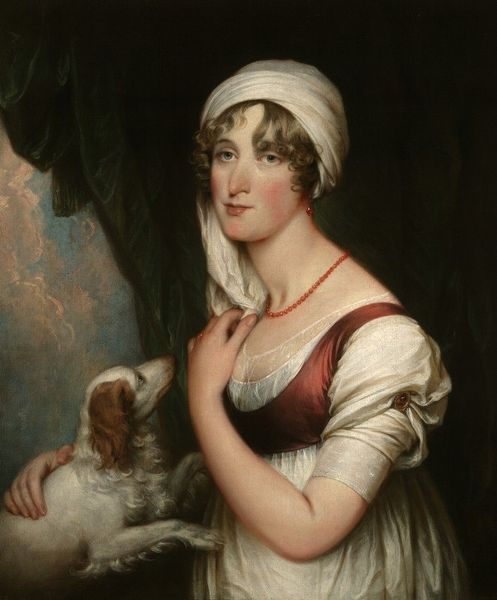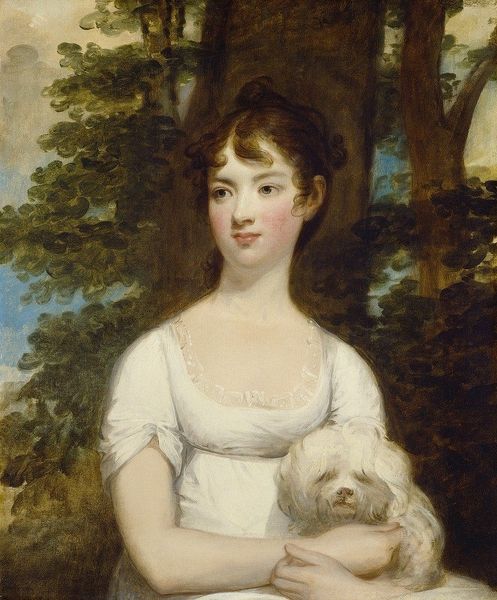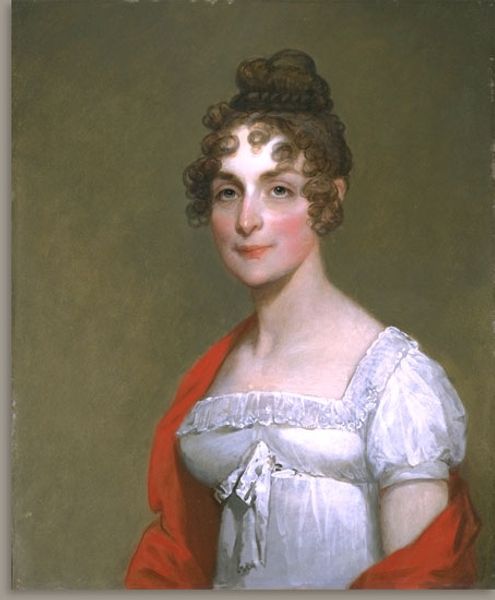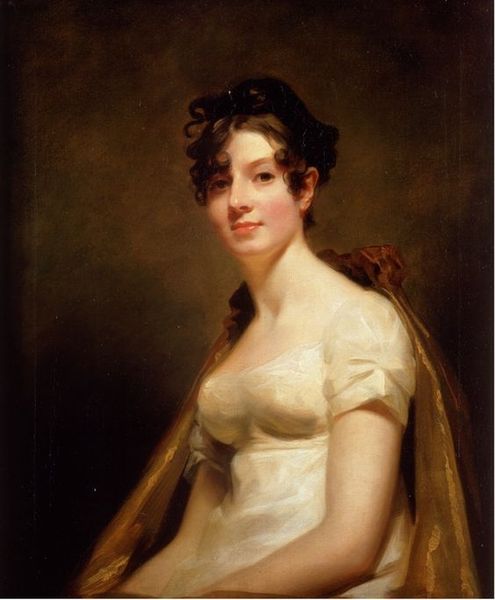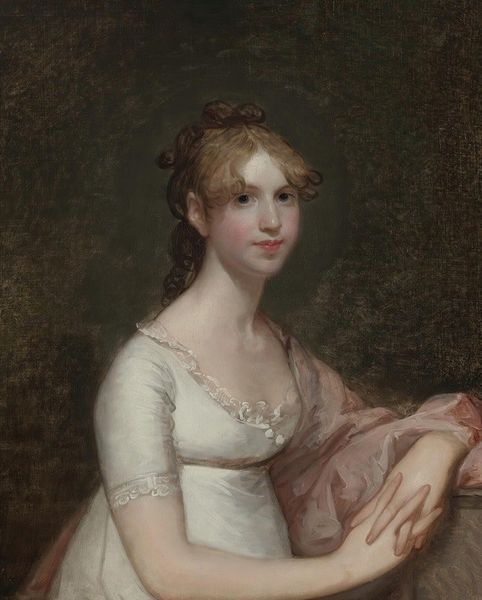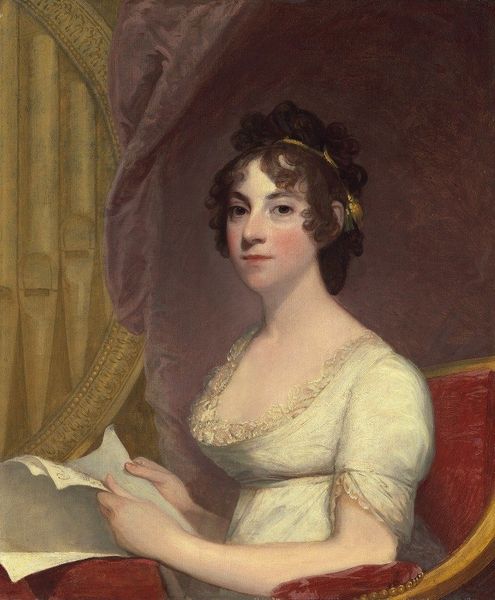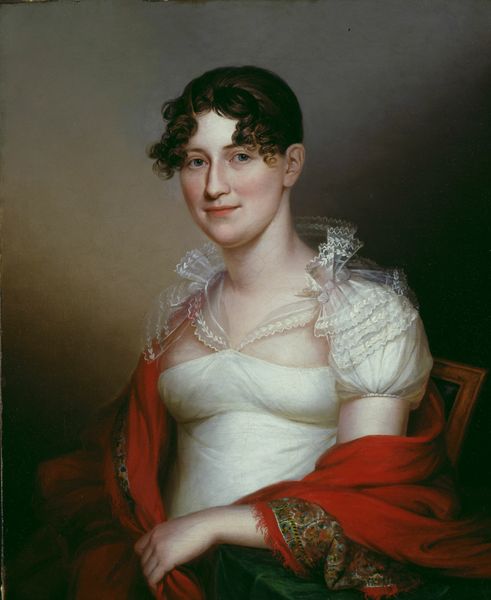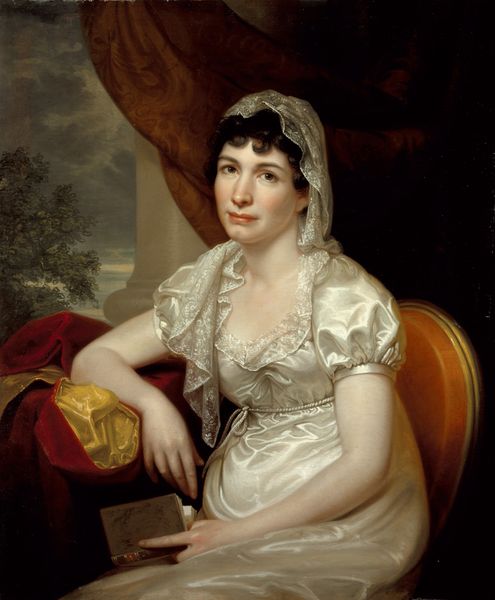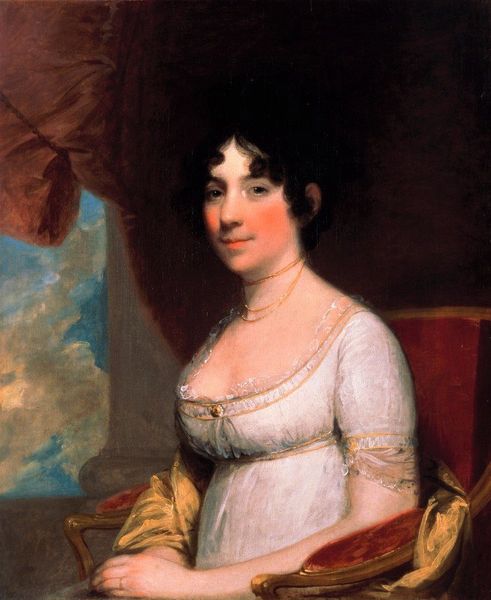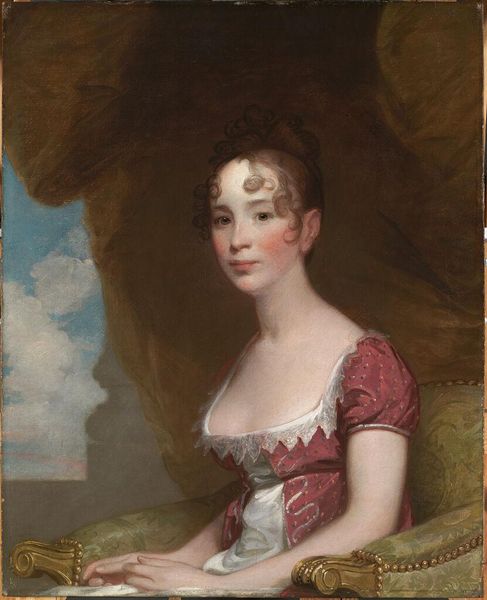
painting, oil-paint
#
portrait
#
painting
#
oil-paint
#
romanticism
#
nude
Copyright: Public domain
Editor: This is Thomas Sully's "Margaret Siddons, Mrs. Benjamin Kintzing," painted in 1812 using oil paints. There's a dreamy quality to it, a sort of soft-focus lens on the subject. What symbolism do you see at play here? Curator: Indeed, a fascinating convergence of symbols. Note the Grecian gown: a deliberate allusion to neoclassical ideals, evoking notions of purity, virtue, and a connection to a classical past – perhaps aspirations for the new Republic? It tells a story of how women wished to be seen. Editor: That's interesting! I was mainly focused on the golden griffin on the chair. Curator: Ah, an important detail! Griffins traditionally symbolize guardianship, strength, and vigilance. Placed next to Mrs. Kintzing, does it perhaps imply protection, or suggest an inherent noble character? Or could it speak to her family's aspirations? Note also the red drape and classical column which lend further complexity to social standing and symbolic intent. What emotions does the griffin itself elicit? Editor: It makes me feel secure, like she's a figure to be admired and perhaps slightly feared. But it's interesting how these classical symbols speak to ambition and the cultural values of the time. Curator: Precisely. And consider how portraiture itself, particularly for women, functioned as a symbol of social standing and legacy. The painting captures not just an individual likeness but a carefully constructed persona, revealing societal expectations and personal aspirations intertwining. The symbols create lasting meaning. Editor: This makes me see the artwork very differently. Thank you! Curator: And thank you, these paintings act as vessels, brimming with coded language; reading them can reveal the aspirations, anxieties, and values of a bygone era.
Comments
No comments
Be the first to comment and join the conversation on the ultimate creative platform.
